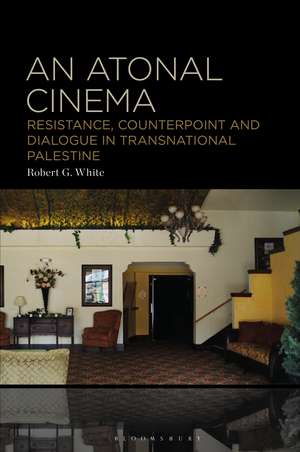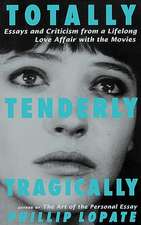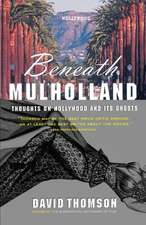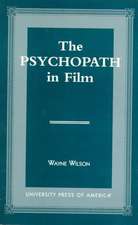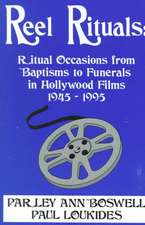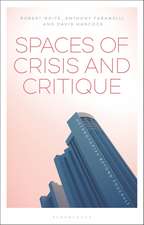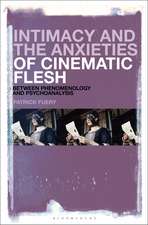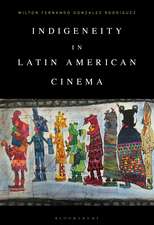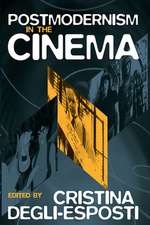An Atonal Cinema: Resistance, Counterpoint and Dialogue in Transnational Palestine
Autor Robert G. Whiteen Limba Engleză Hardback – 26 iul 2023
Preț: 496.64 lei
Preț vechi: 688.04 lei
-28% Nou
Puncte Express: 745
Preț estimativ în valută:
95.03€ • 99.42$ • 78.94£
95.03€ • 99.42$ • 78.94£
Carte tipărită la comandă
Livrare economică 02-16 aprilie
Preluare comenzi: 021 569.72.76
Specificații
ISBN-13: 9781501385018
ISBN-10: 1501385011
Pagini: 196
Ilustrații: 25 bw illus
Dimensiuni: 152 x 229 mm
Greutate: 0.43 kg
Editura: Bloomsbury Publishing
Colecția Bloomsbury Academic
Locul publicării:New York, United States
ISBN-10: 1501385011
Pagini: 196
Ilustrații: 25 bw illus
Dimensiuni: 152 x 229 mm
Greutate: 0.43 kg
Editura: Bloomsbury Publishing
Colecția Bloomsbury Academic
Locul publicării:New York, United States
Caracteristici
The interdisciplinary nature of the book offers a rich engagement with representations of Palestine and its intersection with Levantine and Mediterranean cultures, drawing on the poetry of Mahmoud Darwish, the cinema of Pier Paolo Pasolini and the writing of Carlo Levi and the memoirs of Jean Genet.
Notă biografică
Robert G. White is a lecturer in Media and Communication at Kingston University, UK. His research explores the intersection of film, critical theory and geopolitics. He is the co-editor of Spaces of Crisis and Critique: Heterotopias Beyond Foucault (Bloomsbury, 2018). His research has also been published in Film Criticism, RCL and the Journal of Italian Cinema and Media Studies.
Cuprins
Acknowledgements Introduction Chapter 1: Between Here and Elsewhere: Godard, Genet and the resistance of image in contemporary Palestinian Cinema Chapter 2: Between Presence and Absence: Remnants and revenants in the Cinema of the Interior Chapter 3: Between Diaspora and Exile: Palestine, Chile and the cinema of Miguel Littín Chapter 4: Between Basilicata and Bethlehem: Pasolini, Palestine and the non-European Chapter 5: Towards a post-Palestinian Cinema: Imagining states of being beyond the status quo EndnotesBibliographyIndex
Recenzii
Using Edward Said's writings about music and exile to launch a theorization about the contrapuntal voice in Palestinian diasporic cinema, this book calls into question the very terms of the diasporic and exilic in the Palestinian context. Robert G. White's rigorous yet easy to read prose is deeply informed by the preceding and current literature on Palestinian cinema, the history of Palestine, and the history of modern philosophy to the present, while maintaining a critical eye on the dissonance and gaps between this latter field and his objects of study. Within the pages of one book, we journey from Said's responses to Jean Mohr's photographs about Palestinian refugees in After the Last Sky to Godard's and Genet's critical works on the Palestinian revolution, and Pasolini's essay film, Sopralluoghi in Palestine [Location Scouting in Palestine], to place in relief the films of the pre-Nakba Palestinian/Chilean Miguel Littin, and the films of Elia Suleiman, Kamal Aljafari, Mohaned Yaqubi, Ayreen Anastas and Basma Alsharif. White's assertion that the contrapuntal voice and the "resistance of image" distinguishing these filmmakers challenges the history and concept of partition in Palestine-Israel and fills a gap in contemporary studies of Palestinian cinema.
Not the image of resistance, but the resistance of image. Unfolding this premise across a montage of colonial geographies that spans the globe, Robert White's Atonal Cinema is also an atopic and anachronic cinema, moving on the margins of time and place in search of an image perpetually deferred, displaced, buried, or blurred. Wide-ranging yet concise, White's deft readings bring these interstices, elsewheres, and beyonds into sharp focus, orchestrating a multifaceted and multidirectional dialogue that resonates in a shared space of cosmopolitan connections.
Not the image of resistance, but the resistance of image. Unfolding this premise across a montage of colonial geographies that spans the globe, Robert White's Atonal Cinema is also an atopic and anachronic cinema, moving on the margins of time and place in search of an image perpetually deferred, displaced, buried, or blurred. Wide-ranging yet concise, White's deft readings bring these interstices, elsewheres, and beyonds into sharp focus, orchestrating a multifaceted and multidirectional dialogue that resonates in a shared space of cosmopolitan connections.
